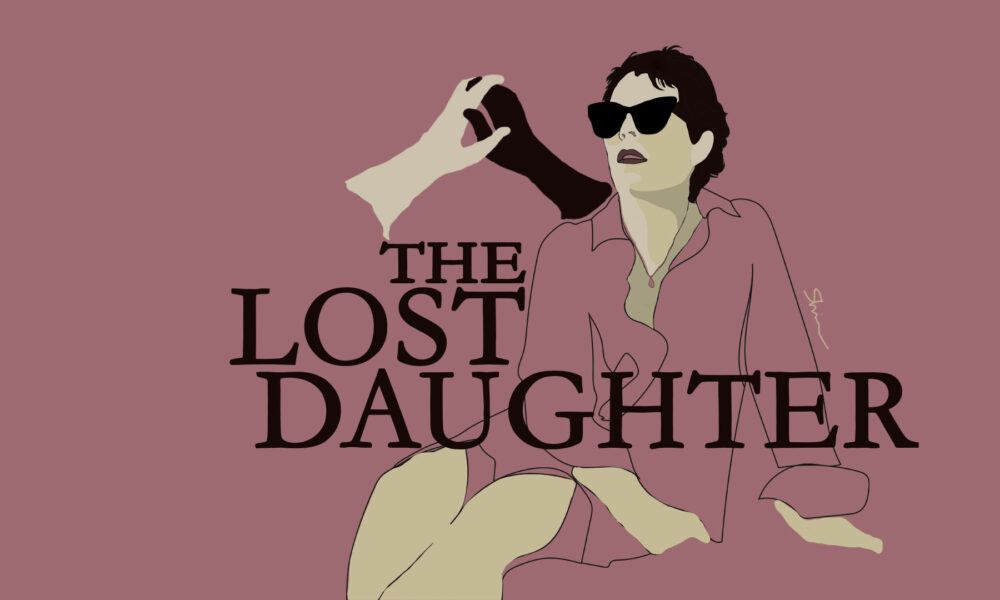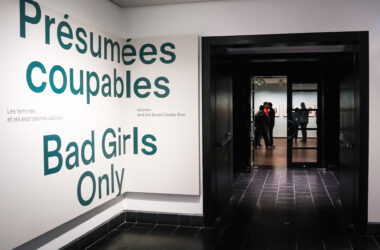Warning: spoilers ahead
Maggie Gyllenhaal’s directorial debut The Lost Daughter, released on Netflix on Dec. 31, contains all the familiar ingredients of a substantial horror film: Dark omens, riveting tension, and a score that has the audience constantly bracing for impact. Despite the film’s mundane activity and warm setting, its chilling subtext leaves viewers clawing into their seats with anticipation. When it comes to evoking unsettling emotions, Gyllenhaal doesn’t settle for child’s play—pun intended. In lieu of demonic jumpscares or tales of twisted abuse, the film tackles a forbidden subversion of what is perceived as innate human nature: The begrudging mother.
Said mother, Leda Caruso (the brilliant Olivia Colman) is a 48-year-old professor of Italian literature on summer vacation on a fictional Greek island. Almost as soon as she arrives, dark bodements encroach, including a bowl of rotting fruit, a piercing cicada, and an obnoxiously loud Italian-American family who interfere with the quiet ambiance of the beach. Although these phenomena may seem like normal disruptions one would expect on vacation, the shuddering tension imbued in the cinematography warns of something much more sinister.
Nina (Dakota Johnson), the enchanting and languid young mother of the American family, and her three-year-old daughter, immediately capture Leda’s attention. When Leda notices the child go briefly missing, spurring Nina into a maternal panic, she is flooded with memories. The audience then meets twenty-something Leda (now portrayed by Jessie Buckley) fraught and splashing about in search of her own daughter Bianca at that same beach. Alarm colours her voice enough to prepare the viewer for imminent tragedy—but it doesn’t come until far later in the film.
When the climactic reveal unearths itself in Leda’s dialogue with Nina, it is not at all as harrowing as the viewer expects. The film sets viewers up for a stomach-churning revelation. But instead, we learn that Leda, battered inside and in great need of respite, renounced her role as a mother and left her daughters with her husband (Jack Farthing) for three years. The plot reveal is still incredibly unnerving because of how transgressive Leda’s aversion to motherhood seems. It is often said that motherhood is a crucially enlightening stage in a woman’s self-actualization; that it gives women a key purpose. Whether in film or in life, mothers are expected to willingly forgo their identities and submit to their duties. Like the Virgin Mary, they are to be selfless child-bearers devoid of sensuality. And above all, they are to relish in these sacrifices.
Leda’s rejection of motherhood—however temporary—is deeply unsettling. Rarely is maternal defiance explored on screen, despite the much deeper sins that television has dared to portray. Of course, there have certainly been representations of anti-mother characters, as seen in Hereditary, Carrie, Cinderella. But almost always, if a mother character shows the slightest bit of resentment or dissatisfaction toward her role, she is immediately painted as a villain.
It is immensely refreshing to see a character like Leda, one with such rich complexity that the audience simply cannot hate her, despite her selfish actions. Though the responsibilities of young parenthood seemed to weigh on her like a crushing burden, the film depicts Leda as anything but uncaring. In one scene, for instance, Leda takes a hairpin and combs it through the young mother Nina’s hair, securing it in her hat. Nina melts under Leda’s nurturing touch, closing her eyes to savour being looked after for once. Leda also often calls her now-grown children, smiling and at peace, and inquires about their lives, suggesting that her maternal relationship with them has become easier. In her flashbacks throughout the film, younger Leda can indeed be harsh and vengeful toward her children. But she can also be radiant, inquisitive, and at times even ardent with her daughters. Colman and Buckley’s stirring performances make it all the more impossible to condemn the character.
Leda’s absence, though undeniably selfish, was a desperate move for self-preservation. Women of her stock—who feel plundered by motherhood, not bolstered by it—do not only exist in fiction. Gyllenhaal does an excellent job introducing this insanely human posture to film. One can only hope that women continue to be portrayed as truly autonomous individuals rather than one-dimensional caregivers.









